Head Injury from a Car Accident in Ontario, Canada
Get Compensated For a Head Injury From a Car Accident in Ontario, Canada
Car accidents in Ontario can be devastating, and one of the most deliberate injuries can result in a head injury. Unfortunately, head injuries are all too common in car accidents in Ontario, and they can have long-lasting effects on victims and their families. Head trauma can range from moderate to severe, depending on the type and harshness of the accident.
Whether it’s a mild concussion or a more severe traumatic brain injury (TBI), a head injury can impact a victim’s physical, emotional, and cognitive abilities, affecting their ability to work, drive, and participate in everyday activities. The long-term effects of these types of head trauma can be life-changing for those affected.
In this web page, we’ll explore head injuries from a car accident, different types of head injuries from car accidents in Ontario, the most common head injuries, as well as what victims can do to seek compensation and support during their recovery.
- What to Do When You Suffer a Head Injury from a Car Accident in Ontario?
- The Consequences of Head Injuries from a Car Accident in Ontario?
- Different Types of Head Injuries From Car Accidents in Ontario?
- Most Common Head Injuries From Car Accidents in Ontario?
- Legal Options for Victims of Head Injuries From Car Accidents in Ontario?
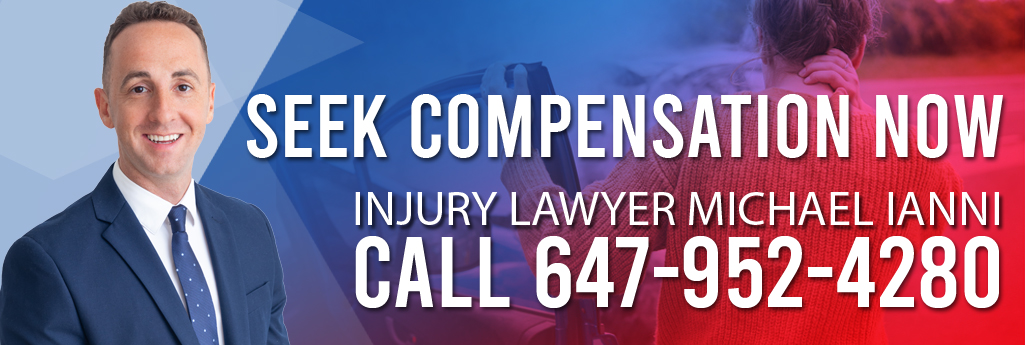
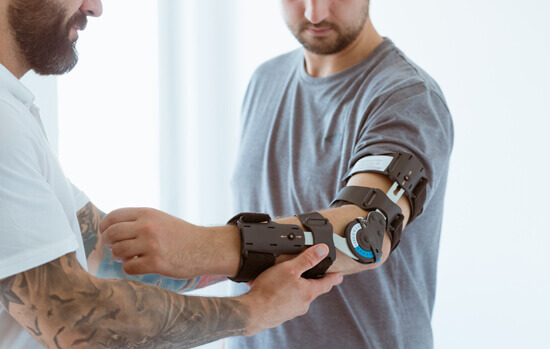
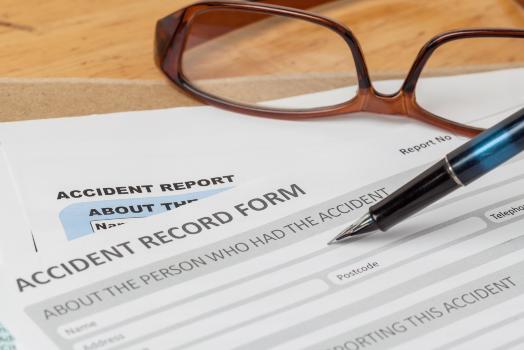
Head Injury From a Car Accident in Ontario, Canada
What to Do When You Suffer a Head Injury from a Car Accident in Ontario, Canada
Head injuries are the prominent cause of death and disability resulting from car accidents in Ontario. A car accident can be traumatising and frightening, especially when it causes a head injury. The effects of head damage can range from minor to severe, and it is important to know what to do if you suffer from one.
Head injuries are a serious and potentially deadly consequence of car accidents in Ontario. According to the Canadian Institute for Health Information, head injuries are the largest number of deaths from motor vehicle collisions (MVCs) across Canada. In Ontario alone, over 70% of people killed in MVCs have experienced some form of head injury.
A head injury from a car accident can be incredibly traumatic and overwhelming. You might wonder what to do if you were injured in a car accident in Ontario.
Here are some tips to help you recover as quickly and efficiently as possible:
- Medical Attention
Suppose you are injured in a car accident in Ontario. In that case, getting medical attention as soon as possible is important. This will help you to assess your injury and decide on the best course of action. - Don’t Move
If you are unconscious or have a head injury, do not move. Moving can further damage your injury. Instead, stay still until you are safely taken to medical attention. - Don’t Drive Yourself
If you are injured in a car accident in Ontario, do not try to drive yourself home, as this can be very dangerous and may not be safe. Instead, call a taxi or take a bus home. - Do Not Try to Take Care of Yourself
If you are injured in a car accident, do not try to take care of yourself, this can be very dangerous and unsafe. Instead, let professionals help you. - Do Not Answer Any Questions
If you are injured, it is generally recommended that you wait to answer any questions until you have had a chance to speak with an attorney or another trusted professional. Anything you say could be used against you in legal proceedings or insurance claims related to your injury. - Do Not Sign Any Documents
If you are injured, signing documents without consulting an attorney or another trusted professional is generally not advisable. This is because signing a document, especially a legal document, can have serious consequences and may impact your ability to seek compensation or damages for your injuries. - Don’t Talk to Media
If you are seeking financial compensation, do not talk to the media. This can give away confidential information you may need to protect in your legal case. - Speak to Lawyer
If you are injured in a car accident, wait to speak to your lawyer. Your lawyer will be able to help you to understand your legal rights and options.
If you can leave the accident scene, you should call the police and report the accident. This will help ensure that evidence is collected and injuries are documented.
Stay calm and remain still if you cannot leave the accident scene. Try to keep your head and neck elevated.
If you can speak, you should provide the names and addresses of any witnesses to the accident. This will help ensure that they are contacted and interviewed as part of the investigation.
There are several ways to lower the risk of head injury in a car accident in Ontario. Here are some preventions:
- Wear your seatbelt: The most effective way to prevent head injuries in a car accident is to wear your seatbelt properly. A properly adjusted seat belt will keep you secure in your seat and prevent your head from striking hard surfaces inside the car.
- Use child car seats: Ensure infants and young children are securely fastened in a properly installed car seat appropriate for their age and size. Children not properly secured are at a greater risk of head injury in a car accident.
- Drive carefully: Follow the speed limit, obey traffic laws, and avoid distracted driving behaviours, such as using your phone while driving. These actions will reduce your risk of getting into an accident in the first place.
- Install airbags: Airbags protect the head and neck during a collision. Make sure that your car is equipped with airbags and that they are in good working condition.
- Drive a car with good safety ratings: When shopping for a car, look for vehicles with high safety ratings. These cars have been designed and tested to protect passengers in a crash.
Make sure your car is well-maintained, especially brakes and tires. Avoid drinking and driving or being distracted by your phone.
If you suffer a head injury from a car accident, it is important to take immediate action. First, always call 911 and seek medical attention as soon as possible. Ensure to document any information about who was involved in the accident, what injuries were sustained, and anything else that occurred at the scene. This can be important evidence in the future when filing a compensation claim.
If you have suffered any head trauma from a car accident in Ontario, it is important to contact a lawyer. A lawyer will help ensure you get the full and fair compensation that you deserve for your medical bills, lost wages, and other damages that result from your injury. A lawyer will also help you with any other legal steps that need to be taken.
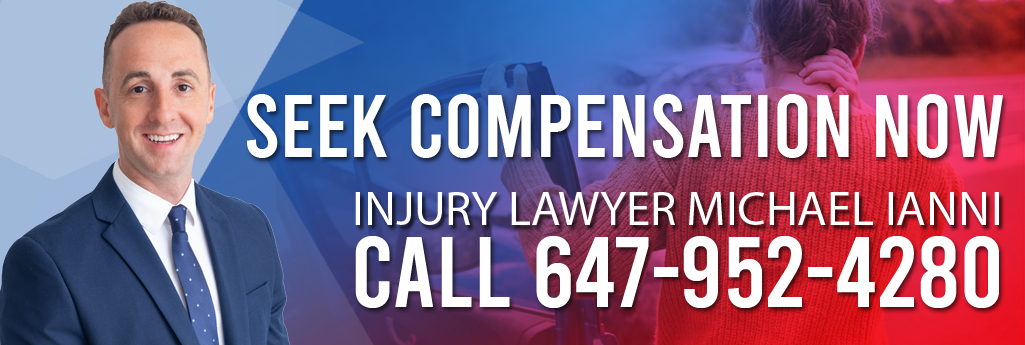

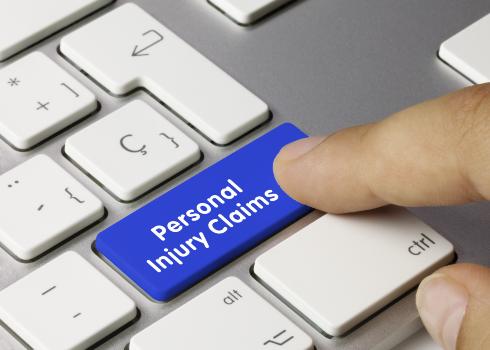
Head Injuries From a Car Accident in Ontario, Canada
The Consequences of Head Injuries from a Car Accident in Ontario, Canada
Unfortunately, car accidents are common in Ontario, and with them, there can be tragic consequences; one of the most serious is head injuries. According to the Ontario Ministry of Health, head injuries are the leading cause of death and disability resulting from car accidents in Ontario.
The World Health Organization (WHO) estimates that road traffic injuries claim more than 1.35 million lives yearly, which is expected to increase. In Ontario, it is estimated that over one-third of all serious and fatal injuries from motor vehicle collisions are head injuries.
Head injuries from car accidents can significantly impact a person’s life. The effects of head trauma can range from mild and temporary to severe and permanent. They can affect a person’s physical, cognitive, and emotional functioning.
Head Trauma is the most serious injury sustained in a car accident. It can range from mild concussions to more severe head injuries such as traumatic brain injury (TBI), skull fractures, and even death. Some common head injuries resulting from motor vehicle collisions include contusions, lacerations and subdural hematomas.
The long-term effects of head trauma can be devastating and last for months or even years. Head injuries can lead to physical, cognitive, emotional, and behavioural impairments and altered communication abilities. Victims may experience severe paralysis, memory loss, and/or personality changes.
Different types of head injuries can be sustained in a car accident. These include:
- Contusion
A contusion is also known as a bruise. It happens when blood vessels underneath the skin are damaged or broken, causing blood to leak into the surrounding tissues. In the context of an accident, discoloration may occur if a person’s head or body strikes a hard surface, such as a steering wheel or dashboard, during a car accident. The impact can cause blood vessels to rupture, leading to a contusion or bruise. The discoloration symptoms can be similar to those of a concussion but can be more severe and longer-lasting. Treatment for contusions may include medication to reduce swelling, surgery in extreme cases, and rehabilitation. - Laceration
This is when the skin or skull is cut or torn open due to a traumatic incident. - Physical Effects
Head injuries can cause physical symptoms such as headaches, dizziness, nausea, and fatigue. More severe injuries can result in physical disabilities, such as paralysis or difficulty with speech and mobility. Recovery from physical symptoms can be long and difficult, involving medical treatment and rehabilitation. - Cognitive Effects
Head injuries can also cause cognitive symptoms such as memory loss, difficulty concentrating, and impaired judgement. More severe injuries can result in permanent brain damage, affecting a person’s ability to think, communicate, and perform everyday tasks. - Emotional Effects
A head injury’s emotional effects can also be significant, causing anxiety, depression, and other mental health issues. These effects can be exacerbated by the physical and cognitive limitations resulting from the injury, making it difficult for the victim to engage in daily activities and maintain relationships. - Impact on Family and Relationships
Head injuries can also significantly impact a person’s family and relationships. The damage’s physical, cognitive, and emotional effects can strain relationships with loved ones and require extensive care and support from family members. - Financial Effects
The financial impact of a head injury can also be substantial, resulting in lost income due to missed work or reduced earning capacity, as well as high medical bills and ongoing treatment costs.
Head injuries from car accidents are a serious issue in Ontario and worldwide. It is important to take preventive measures when driving to reduce your risk for head trauma.
You may be qualified for compensation if you have sustained a head injury due to a car accident in Ontario. Contacting a lawyer to discuss the details of your case is important. They can help assess your situation and advise you on the best action.
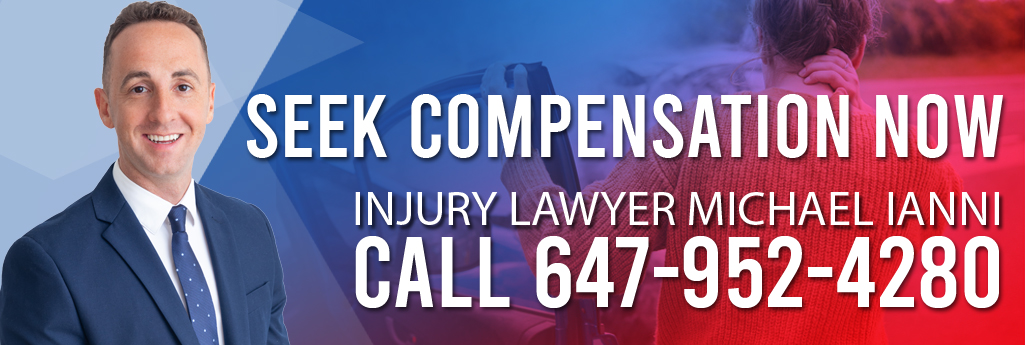

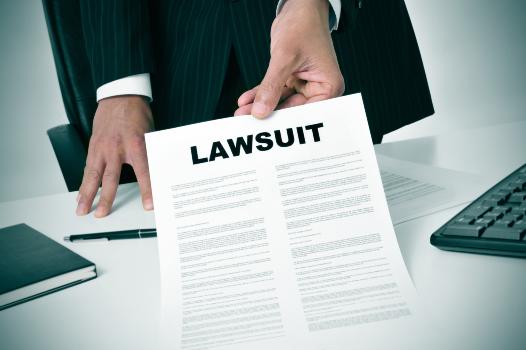
Head Trauma From a Car Accident in Ontario, Canada
Different Types of Head Injuries From Car Accidents in Ontario, Canada
Head injuries can result from car accidents in Ontario, ranging from mild concussions to serious traumatic brain injuries (TBI). Several types of head injuries can occur in car accidents, and each one requires a different approach to treatment.
Suppose you have been hurt in a car accident in Ontario. In that case, you may wonder what head injuries you will likely suffer.
Here are the different types of head injuries from car accidents in Ontario:
- Concussion:
A concussion develops when the brain is shaken or rattled inside the skull due to an impact. It can also result from a sudden, forceful blow to the head. Concussions can cause various symptoms, including headaches, dizziness, fatigue, memory problems, confusion, nausea, and vomiting. In severe cases, loss of consciousness can occur. If left untreated, a concussion can develop into a more serious head injury called concussion syndrome. - Skull Fracture:
This is a break in the skull that may or may not be detectable on imaging tests similar to an X-ray or CT scan. Symptoms can include headache, nausea and vomiting, blurred vision, ringing in the ears and, in severe cases, unconsciousness.When it comes to skull fractures, the most common type of fracture is a fracture of the skullcap. This fracture is a closed head injury because the skullcap doesn’t usually break open. The brain can be displaced and suffer serious damage when this fracture occurs. Injuries that occur when the brain is replaced can include a bleed on the brain, a fracture of the skull, or a concussion.
- Jaw Fracture:
Regarding other types of head injuries, the most common type is a jaw fracture. This fracture can be caused by the impact of the car accident, by the force of the object that is hitting the head, or by the force of the person who is hitting the head. This type of fracture can often require surgery to fix, and it can cause a lot of pain and difficulty when it is healing. - Traumatic Brain Injury (TBI):
A more serious head injury can occur when the brain experiences a direct blow or rapid acceleration/deceleration movement, such as whiplash. Symptoms vary widely depending on the severity and location of the injury. They can include changes in behaviour, memory and cognitive functioning, balance and coordination problems, seizures, fatigue, nausea and vomiting.TBIs can be classified into two main categories: closed and open. A closed TBI is where the skull is not broken, and the brain remains inside the head. An open TBI is where the skull is broken, and the brain has been forced out of the skull.
- Scalp Lacerations:
Scalp lacerations are cuts to the skin on the scalp, and they can occur from the force of the collision or from the impact of the head against the windshield. If left untreated, scalp lacerations can develop into a head wound called a scalp laceration haemorrhage. - Minor Head Injuries:
Minor head injuries include bruises, cuts, and scratches. They can occur anywhere on the head and often don’t require medical attention. - Head Injuries from Other Sources:
Head injuries from other sources include injuries caused by falls, car accidents involving animals, and injuries sustained while playing sports. - Spinal Cord Injury:
A spinal cord injury (SCI) is a severe injury to the spinal cord which can occur after a car accident. Symptoms can include paralysis below the injury, loss of bladder and bowel control, and difficulty walking. If left untreated, an SCI can lead to permanent disabilities. - Headache:
A headache is a common symptom after a head injury in a car accident. Headaches may be mild, moderate, or severe. - Brain Tumour:
A brain tumour is a growth or lump on the brain. Symptoms may include headache, nausea, vomiting, seizures, confusion, and difficulty speaking. If left untreated, a brain tumour can lead to death. - Brain Bleed:
A brain bleed is a type of injury resulting in brain bleeding. Symptoms of a brain bleed may include a headache, a seizure, or a coma. If you note any of these symptoms, you should see a doctor.
Head injuries can have a very wide range of long-term consequences. Some of the more common long-term problems include:- Memory problems
- Dementia
- Amnesia
- Difficulty concentrating
- Inability to think straight
- Social withdrawal
- Nerve damage
- Depression
The long-term effects of head trauma can be devastating. They can include chronic headaches, sleep disturbances, speech or language impairments and psychological changes such as depression or anxiety. It is critical to seek medical attention immediately after a car disaster if you experience any of the disorders.
Taking preventative measures when driving is also important to reduce your risk of head injuries from a car accident. Always wear your seatbelt and drive responsibly by following the rules of the road, avoiding distracted driving and never operating a vehicle while under the influence of drugs or alcohol.
If you or a loved one has sustained a head injury due to a car accident, it is important to seek legal advice. A lawyer can help you get the allowance you deserve for your injuries and advise on other legal matters related to the accident. It is always best to contact an experienced advocate as soon as possible after the accident.
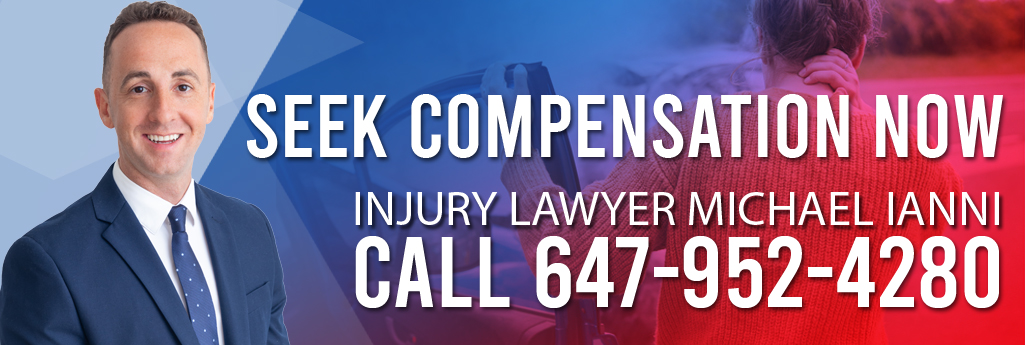
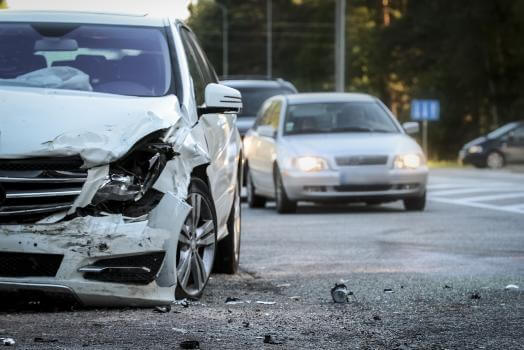

Types of Head Injuries From Car Accidents in Ontario, Canada
Most Common Head Injuries From Car Accidents in Ontario, Canada
Head injuries are one of the most serious and potentially devastating injuries due to a car accident. In Ontario, head injuries are the leading cause of death and disability resulting from car accidents. As such, it is important to understand the types of head trauma that can occur from a car accident, how to prevent them, and the long-term effects of head trauma.
According to data from the Ontario Ministry of Transportation, head injuries account for a significant portion of car accident injuries in the province.
There are various types and degrees of head injuries that can occur as a result of a car accident.
Here are some additional types of head injuries that can occur in car accidents in Ontario:
- Eye Injuries:
Car accidents can cause a wide range of eye injuries, including retinal detachment, corneal abrasions, and damage to the optic nerve. These injuries can lead to vision problems, including blurry vision, double vision, and even blindness. - Facial Fractures:
Car accidents can cause fractures to the facial bones, including the nose, cheekbones, and jawbone. These fractures can cause pain, swelling, and difficulty breathing or speaking. - Whiplash Associated Disorder (WAD):
Whiplash is a typical injury in car accidents that occurs when the neck is jerked back and forth quickly. WAD is a term used to describe the symptoms that can occur after a whiplash injury, including neck pain, headaches, and dizziness. - Hemiplegia:
Hemiplegia is a type of paralysis that disturbs one side of the body. It can occur due to a head injury in a car accident and can cause difficulty with movement and coordination. - Post-Traumatic Stress Disorder (PTSD):
PTSD can occur after a traumatic action, such as a car accident. It can cause symptoms such as anxiety, depression, and flashbacks to the traumatic event. - Diffuse Cerebral Edema:
This type of brain swelling can occur after a head injury. It can cause symptoms such as headaches, nausea, and confusion. - Axonal Injury:
Axonal injury occurs when the brain’s axons are damaged or severed, disrupting communication between brain cells. It can cause many symptoms, including unconsciousness, coma, and death. - Subdural Hematoma:
Hematomas occur when there is bleeding inside the brain. There are two types of hematomas: epidural and subdural. Epidural hematomas are caused by bleeding between the skull and the brain’s outer membrane. In contrast, subdural hematomas occur when there is bleeding between the brain and the membrane that covers it. Symptoms of hematomas can include severe headaches, confusion, seizures, and loss of consciousness. Treatment for hematomas usually involves surgery to remove the blood clot and relieve pressure on the brain. - Intracerebral Hemorrhage:
This is a type of bleeding that occurs inside the brain, often as a result of a head injury. It can cause symptoms such as headaches, dizziness, and seizures. - Cerebral Contusion:
Cerebral contusions are bruises on the brain that can occur due to a head injury. They can cause symptoms such as headaches, confusion, and memory loss. - Coup-Contrecoup:
A coup-contrecoup injury occurs when the brain hits the inside of the skull on both sides due to a sudden impact. This can cause two brain injuries – one at the point of impact (coup) and the other on the opposite side of the brain (contrecoup). Symptoms of a coup-contrecoup injury may include loss of consciousness, memory loss, and seizures.
The long-term effects of head injuries are serious. Common physical symptoms include loss of balance and coordination, slurred speech, memory problems, confusion, and depression. In addition to physical symptoms, head injuries can result in cognitive and psychological impairments.
Suppose you or someone you know has been involved in a car accident in Ontario and has suffered a head injury. In that case, it is important to seek medical attention immediately. Early treatment can help prevent complications and improve outcomes.
After being injured in a car accident due to another driver’s negligence, in that case, it is important to contact a personal injury lawyer for advice on how to get compensation. A lawyer can help you understand your rights and will be able to provide guidance on the best course of action for your situation.
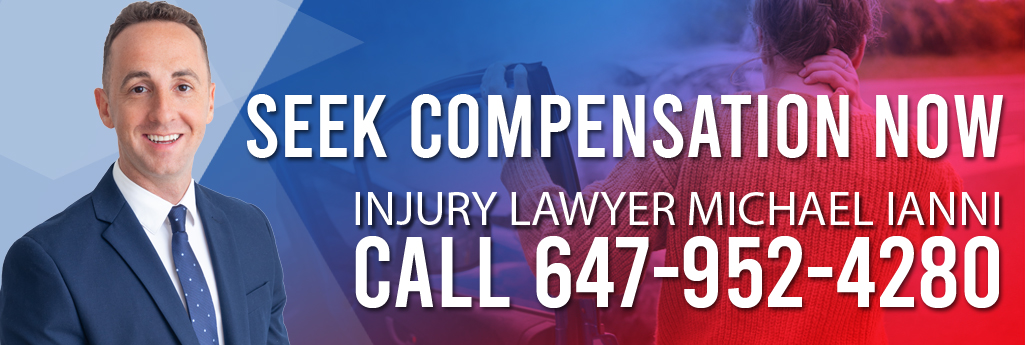
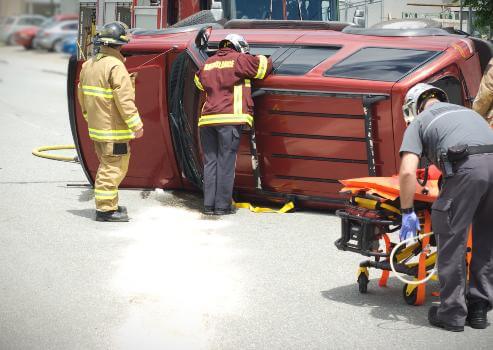

Common Head Injuries From Car Accidents in Ontario, Canada
Legal Options for Victims of Head Injuries From Car Accidents in Ontario, Canada
Head injuries from car accidents in Ontario can have devastating physical and financial consequences. Victims of head injuries may face long-term medical treatment, rehabilitation, and lost income. Fortunately, Ontario law provides legal options for victims of head injuries from car accidents to seek compensation for their losses.
Suppose you have been injured in a car accident in Ontario. In that case, you may be wondering what legal options are available. In general, there are a few different legal options.
- Accident Benefits
Accident Benefits are benefits your automobile insurance company provides regardless of who was at fault for the accident. These benefits can include coverage for medical expenses, rehabilitation, and income replacement if you are unable to work due to your injuries. - Tort Claim
If you are injured in a car accident due to the fault of another driver, you may be able to file a tort claim against the at-fault driver. A tort claim is a legal action seeking compensation for damages such as pain and suffering, loss of income, and medical expenses. - Personal Injury Claims
If you are injured in a car accident, you may be able to pursue a personal injury claim. A personal injury claim is a legal claim filed by someone who has been injured as a result of the actions of another person. In most cases, a personal injury claim is filed against the person responsible for the accident – the driver of the car, the driver’s insurer, or the person driving the other vehicle.A personal injury claim may entitle you to financial compensation for your injuries. Compensation may include money for medical expenses, lost wages, and pain and suffering.
- Car Accident Claims
If you are injured in a car accident, you may also be able to pursue a car accident claim. A car accident is a legal claim filed by someone damaged due to the collision of two or more vehicles. In most cases, a car accident claim is filed against the driver of the vehicle involved in the accident.
A car accident claim may entitle you to financial compensation for your injuries. Compensation may include money for medical expenses, lost wages, and pain and suffering. - Driver’s Insurance Claim
If you are injured in a car accident, you may also be able to pursue a claim against the driver’s insurer. A driver’s insurer is the insurance company that covers the vehicle’s driver involved in the accident. A driver’s insurer may be liable for financial compensation for your injuries, including money for medical expenses, lost wages, and pain and suffering. - Limitation Periods
It’s important to note that Ontario has strict limitation periods for filing a tort claim. The general limitation period is two years from the date of the accident. However, some exceptions exist, such as for minors or individuals unaware of their injuries until later. - Punitive Damages
If you are hurt in a car accident, you may be able to sue the other driver for punitive damages. Punitive damages are designed to punish the defendant and make an example of them. They are usually awarded in cases where the defendant has been malicious or reckless in their actions. - Working with a Personal Injury Lawyer
Navigating the legal process for seeking compensation for a head injury can be complex and challenging. Working with an experienced personal injury lawyer can help ensure that you receive fair compensation for your losses. A personal injury lawyer can help you understand your legal options, negotiate with insurance companies, and represent you in court if necessary. - Documentation
Documenting your injuries and losses following a car accident is also important. This includes seeking medical treatment as soon as possible, keeping track of all medical expenses and lost income, and taking photographs of any visible injuries or property damage.Victims of head injuries from car accidents in Ontario have legal options for seeking compensation for their losses. Accident Benefits and tort claims are two potential avenues for seeking compensation. Still, working with an experienced personal injury lawyer and documenting all injuries and losses is important to ensure a fair settlement.
You may be able to receive punitive damages if the other driver:- Was driving under the influence of alcohol or drugs.
- Was driving without a licence or with a suspended licence.
- Was speeding.
- Was driving recklessly.
- Was going with a damaged car
- Caused your injuries by operating in a manner that was dangerous to others
Please remember that these figures are only general estimates and not guarantees. To get a more accurate assessment of your case’s potential value, consult an experienced personal injury lawyer who can evaluate your situation and better understand the compensation you may be entitled to.
*The laws pertaining to automotive injuries are complex and are contsantly evolving. The information on this website was not written by legal professionals and should not be considered legal advise. Please contact a professional personal injury lawyer serving Ontario for the most up to date and accurate information.






